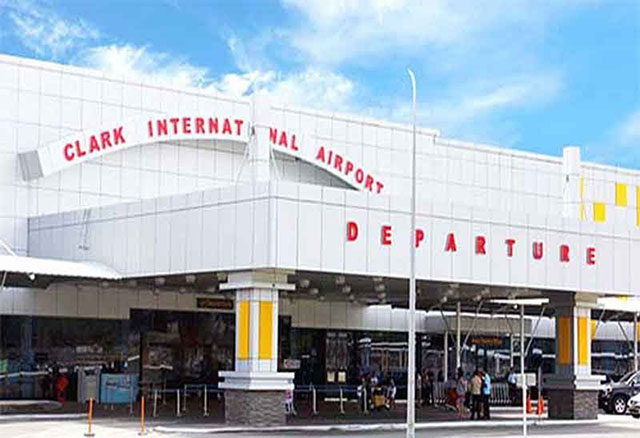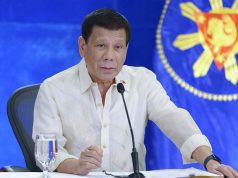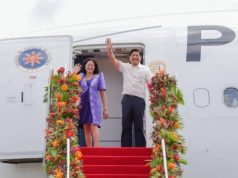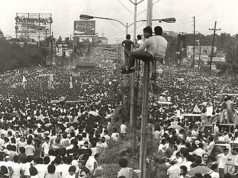A house bill that aims to revert the name of Clark International Airport to Diosdado Macapagal International Airport was passed on its third and final reading in order to honor the Philippines’ ninth president and commemorate his legacy in the country.
House Bill 8649 was approved by Congress which is headed by House Speaker Gloria Macapagal-Arroyo, the daughter of Diosdado.
The bill was principally authored by Pampanga Representatives Aurelio “Dong” Gonzales Jr. Carmelo Lazatin II and 21 other legislators.
Both Gonzales Jr. and Lazatin are known allies of the incumbent House Speaker.
The bill received 199 affirmatives votes with no dissents or abstaining opinions from representatives.
Three months ago, the House Committee on Transportation approved two bills that sought to rename the airport in Macapagal’s honor.
Catanduanes Rep. Cesar Sarmiento, who belongs in the same political party as Arroyo, said that the bills were supported by the provincial government of Pampanga and its constituents.
He reasoned that it would “institutionalize the old name of the airport in honor of the former president and his accomplishments and contributions to the country.”
History of the name changing
Initiative to change the airport’s name began in 2001, when a resolution was issued by the Clark International Corporation Board to refer to Clark International Airport as the Diosdado Macapagal Airport.
It was originally named Clark International Airport, derived from the former American Clark Air Force Base which served as the United States’ largest overseas base for its Air Forces until 1991.
The initiative to change its name to Diosdado Macapagal Airport was done to honor the former president’s 91st birthday at that time.
By 2003, Arroyo during her presidency officially referred to the airport as the Diosdado Macapagal Airport in Executive Order 193 (series of 2003).
She expanded its facilities with the help of a Korean firm to “liberalize” the air travel’s region and for it to become the country’s premier international gateway.
Nine years later, plans to change the airport’s name back to Clark International Airport surfaced with the support of Felipe Antonio Remollo, a Liberal Party stalwart.

It was backed up by the Aquino administration that eventually charged Arroyo for a P366 million plunder case.
From 2012 to the present, the airport became known as the Clark International Airport, although the passenger terminal still bears Macapagal’s name.
Pampanga Rep. Gonzales in 2016 filed House Bill 2274 which sought for the airport to be referred to as the Diosdado Macapagal International Airport once more.
The bill was further supported by the provincial government of Pampanga that filed a resolution in July 2018. It urged President Rodrigo Duterte and Congress to create a proclamation or a legislative act that would change the airport’s name.
Two months later, Representatives Rondante Marcoleta, Rolando Andaya Jr., Arthur Yap and Carmelo Lazatin II filed House Bill 8289 that justified the airport’s renaming.
They noted that the initiative would keep up with the guidelines of the National Historical Commission of the Philippines where “proposed names of public structures must have historical and cultural significance.”
By October 2018, the Congress under Arroyo’s leadership approved the two house bills filed in relation to the airport name change.
It was finalized in December 2018 under House Bill 8649, where it received majority of the affirmative votes.
The legacy of Macapagal
Former President Diosdado Macapagal is the first Kapampangan to become President.
He was often referred to as the “poor boy from Lubao” who was known for introducing the country’s first land reform law and for stimulating the economy.
Macapagal placed the Philippine peso on the free currency exchange market, liberalized foreign exchange, encouraged exports and sought to curb income tax evasion.
Pampanga Rep. Gonzales referred to him as a “statesman, champion of the poor, nationalist and (a) dedicated public servant” who championed land reform, free enterprise and social welfare programs.
Macapagal also initiated the move to change the Independence Day celebration from July 4 to June 12 to commemorate former President Emilio Aguinaldo’s efforts in liberating the country from the Spaniards. — Video by Uela Altar-Badayos









